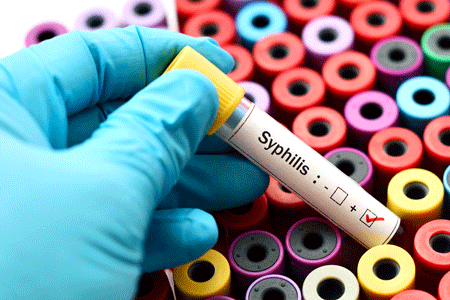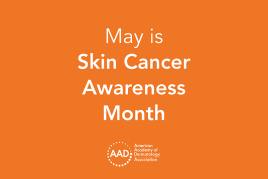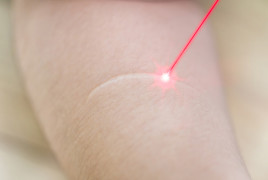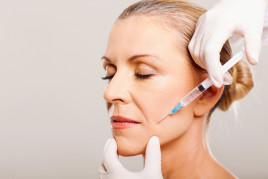Syphilis: Overview
Syphilis
What is syphilis?
Syphilis is a sexually transmitted disease.
Is it contagious?
Yes. You can get syphilis by having oral, anal, or vaginal sex. If a woman who is pregnant has syphilis, she can infect her unborn child (fetus).
What is syphilis?
For many years, syphilis was thought to be a disease of the past. Now, it’s making a comeback. In 2018, more people were diagnosed with syphilis than HIV.
The good news is that syphilis is easy to diagnose and cure. Usually, a simple blood test tells you if you have syphilis and an antibiotic medication cures it.
What are the symptoms?
Syphilis can cause problems on the skin and in nearly every organ inside the body. The earliest warning signs are often on the skin.
Why are people getting syphilis?
Many people still think syphilis is a disease of the past. That may lead them to miss the early warning signs. These early warning signs tend to be painless and usually go away within 3 to 6 weeks.
When the early warning signs go away, most people still have syphilis. Without treatment, you can spread syphilis to others. Even when you don’t see signs of syphilis, you can still get and spread it through sexual contact. As more people become infected, the number of people who have syphilis grows.
Testing can find syphilis early
Today, doctors are again encouraging patients to get tested for syphilis. The mention of syphilis can come as a shock to patients, who believe that something else is causing their symptoms. Patients often want to try treatment for another condition first. Doctors discourage this approach.
Waiting to get tested allows syphilis to spread to other parts of your body. When this happens, the disease can cause hearing loss. If it affects your eyes, you may never see as clearly. Some people develop a widespread rash or open sores.
When syphilis affects the skin, many people make an appointment to see a dermatologist. After carefully examining a patient’s skin and asking questions, a dermatologist may recommend a syphilis test.
Getting tested when your dermatologist first recommends it can protect your health. Here’s how:
If you don’t have syphilis: Testing will rule out syphilis, giving you peace of mind and allowing your dermatologist to properly diagnose you. This allows you to get the treatment you need.
If you have syphilis: You can get treatment that cures you.
Testing still saves lives
In mid-century America, posters encouraged people to get tested for syphilis, and the disease almost disappeared. Now it’s back.

Every pregnant woman should get tested for syphilis
In the United States, pregnant women get tested for syphilis. Testing usually happens during the first prenatal visit.
Testing is recommended because a woman who is pregnant can pass syphilis on to her unborn child. Syphilis can cause serious birth defects. It can cause the baby to be born dead (stillborn). Treatment cures the disease so that a mother cannot give syphilis to her unborn child.
It’s easy to miss the warning signs of syphilis, along with other signs and symptoms. See what happens during each stage of this disease at:
Image
Getty Images
References
Evans A. “No longer on display.” Dermatol World. 2019:29(9):42-7.
Forrestel AK, Kovarik CL, et al. “Sexually acquired syphilis Historical aspects, microbiology, epidemiology, and clinical manifestations.” J Am Acad Dermatol 2020;82:1-14.
Kimes K, McLeish S, et al. Poster 6877: “Secondary syphilis mimicking palmoplantar psoriasis: The reemerging of ‘‘the great imitator.’’ J Am Acad Dermatol 2018;79:AB255. Commercial support: None identified.
Stary G, Stary A. “Sexually transmitted infections.” In: Bolognia JL, et al. Dermatology. (fourth edition). Mosby Elsevier, China, 2018: 1447-59.
U.S. Department of Health and Human Services, Centers for Disease Control and Prevention. “Syphilis: Pocket guide for providers.” Last accessed April 3, 2020.
U.S. Department of Health and Human Services, Centers for Disease Control and Prevention. “Pregnancy and HIV, viral hepatitis, STD, and TB prevention: Screening recommendations.” Page last reviewed May 22, 2019. Last accessed April 3, 2020.
 Think sun protection during Skin Cancer Awareness Month
Think sun protection during Skin Cancer Awareness Month
 How to care for your skin if you have lupus
How to care for your skin if you have lupus
 Practice Safe Sun
Practice Safe Sun
 Sunscreen FAQs
Sunscreen FAQs
 Fade dark spots
Fade dark spots
 Hidradenitis suppurativa
Hidradenitis suppurativa
 Laser hair removal
Laser hair removal
 Scar treatment
Scar treatment
 Botox
Botox
 Kids' camp - Camp Discovery
Kids' camp - Camp Discovery
 Dermatologist-approved lesson plans, activities you can use
Dermatologist-approved lesson plans, activities you can use
 Find a Dermatologist
Find a Dermatologist
 Why choose a board-certified dermatologist?
Why choose a board-certified dermatologist?